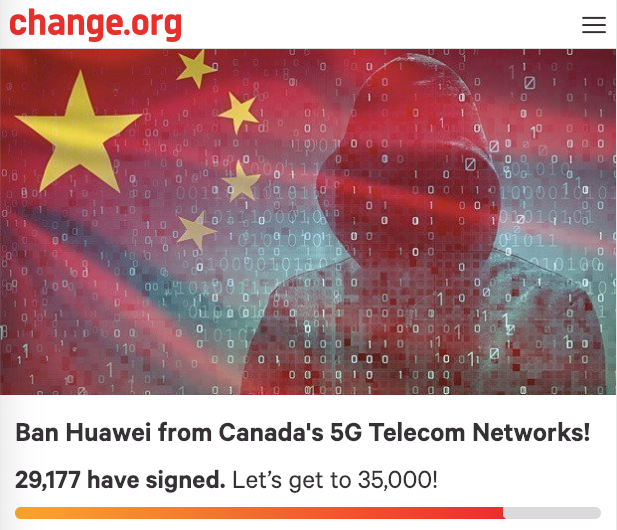Should Canada ban Huawei from its 5G networks?
Chinese tech giant Huawei has dominated headlines this year. The company is a world leader in 5G technology the company and has a close connection to the Chinese government, which makes many Western leaders nervous. Is it too risky for Huawei to help build Canada’s 5G network? Brian Lee Crowley of the Macdonald Laurier Institute argues yes, while Stockwell Day, the former Leader of the Opposition, Telus board member and member of the Canada China Business Council argues no. [what!]
5G is the 5th generation of wireless technologies that have resulted in the evolution of mobile devices from unwieldy radio-telephones to sophisticated tiny smartphones and tablets. Once fully in place 5G, however, will be a significant leap in speed and capacity, eventually enabling the long-foretold internet of Things, [however some argue it has a dark side not being discussed in the media and indeed dangerous to ones health].
Driverless cars will be possible because they need to communicate wirelessly with each other in real time to avoid accidents. Trucks and other heavy equipment and possibly even massive infrastructure, like electricity distribution and their operators, can be miles apart. We will all send evermore sensitive and confidential data across the 5G network.
Safety, privacy and prosperity will depend on the security and reliability of 5G, who supplies the network equipment is a real national security concern. [Communist China's Huawei ?] Malign actors with clandestine access to the system can pose both passive and active dangers. Passive actions include things like data theft; active ones include interfering with the networks and devices reliant on 5G for their operation.
Huawei, is among a number of suppliers globally (including Qualcomm, Samsung, Ericsson and Nokia) that are able to provide the “backbone” equipment for 5G networks. Here is where the passive and active dangers reside.
A supplier could, for example, use the system’s inherent complexities to obscure features causing data passing through the system to be copied and sent on to a distant location for analysis, compromising commercial or military secrets. Hidden “back doors” might allow those with the key to seize control of networks and devices, like stock markets, heavy equipment or electricity grids.
Precisely because of 5G’s complexity, no one can certify backbone equipment “safe,” especially since changes might be introduced later by repairs and software upgrades, or gradually through those back doors. That makes the trustworthiness of suppliers paramount.
By now Canadians are painfully aware that China is a rising power and, under the Communist Party (CCP), is a strategic enemy of the West’s and its values of democracy, human rights and the rule of law. Where 5G is concerned, everything hangs on whether we should regard Huawei as a Trojan horse for the interests of a CCP regime seeking geostrategic advantage.

No comments:
Post a Comment
Comments always welcome!